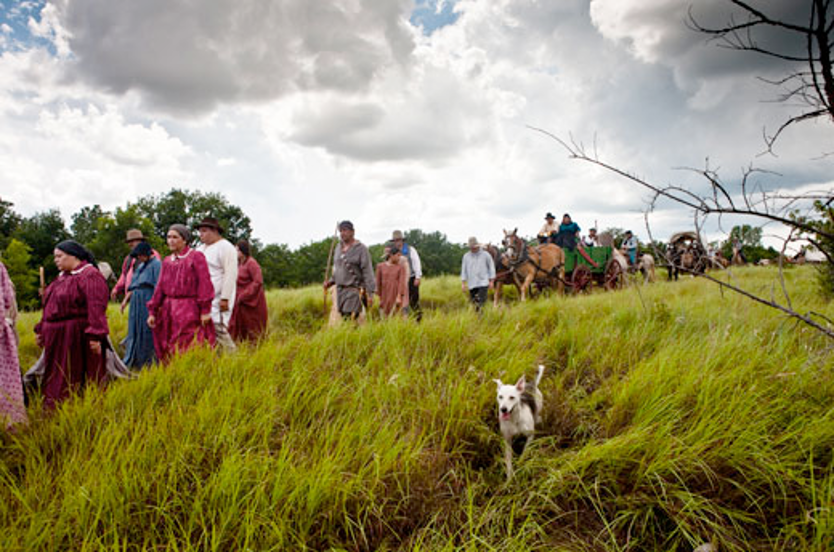Plagiarism Exercises
This handout is available for download in DOCX format and PDF format.
Plagiarism—the use of information, ideas, or visual material created by others without giving the original author(s) credit—is unacceptable in academic writing. However, recognizing plagiarism isn’t always easy and takes a bit of practice. These exercises offer a chance to do just that!
Original Source
Excerpt from Introduction to Chapter 12 of The American Yawp, by Locke, Wright, et al.:
Congress passed the Indian Removal Act in 1830, thereby granting the president authority to begin treaty negotiations that would give Native Americans land in the West in exchange for their lands east of the Mississippi. Many advocates of removal, including President Jackson, paternalistically claimed that it would protect Native American communities from outside influences that jeopardized their chances of becoming “civilized” farmers. Jackson emphasized this paternalism—the belief that the government was acting in the best interest of Native peoples—in his 1830 State of the Union Address. “It [removal] will separate the Indians from immediate contact with settlements of whites . . . and perhaps cause them gradually, under the protection of the Government and through the influence of good counsels, to cast off their savage habits and become an interesting, civilized, and Christian community.”14
Writing Examples
The following writing examples each use information from this American History textbook. Which ones avoid plagiarism by applying the source correctly?
Example 1:
- The Indian Removal Act of 1830 gave the president authority to begin treaty negotiations that would give Native Americans land out West in exchange for their lands east of the Mississippi.
Example 2:
- President Jackson and many other people believed that removal would protect Native American communities from outside influences that undermined their chances of becoming civilized farmers (Locke, Wright, et al., 2019).
Example 3:
- Paternalism – defined by Locke, Wright, et al. as “the belief that the government was acting in the best interest of Native peoples” – was on full display in President Jackson’s 1830 State of the Union Address (2019).
Example 4:
A student wants to use an image in her paper and finds a photograph illustrating the Chickasaw People’s removal on the Chickasaw Nation website. She adds the photo to her paper and writes:
- Some nations such as the Chickasaw were forced to relocate to Western lands by the paternalistic Indian Removal Act of 1830 (see Figure 1).

Figure 1
Robert Cochran, Brandeis University Library, and Brandeis University Writing Center, 2023.